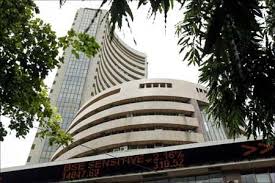
New Delhi, Nov 3: After commencing on a cheerful note in the new Hindu calendar year, Samvat 2070, the BSE benchmark hits new record of 21,321.53, up 124.72 points in the special muhurat session.
The sensex, which had recorded a handsome gain of 626.53 points in the previous four sessions, added another 124.72 points, or 0.58 per cent to trade at 21,321.53 in the first five minutes of trade.
The index had climbed to an all-time high of 21,293.88 in intra-day trade on November 1 but closed at 21,196.81.
The broad-based National Stock Exchange index Nifty also rose by 29.75 points, or 0.47 per cent to 6,336.95, led by stocks of consumer durables, realty and healthcare shares.
The Nifty had registered its all-time high of 6,357.10 on January 8, 2008 and a record close of 6,312.45 on November 5, 2010.
Brokers said the buying activity picked up in select stocks as investors and funds opened their new accounts on the first session of Samvat year 2070. The sensex gained 13.5 per cent in Samvat 2069.
The share market has remained in a positive mood in the past few sessions amid continued foreign fund buying and renewed optimism about a turnaround in the economy.
The "muhurat" trading session will be conducted for 75 minutes on leading bourses NSE and BSE, to pay obeisance to Lakshmi, the Hindu goddess of wealth and prosperity. It muhurat session also mark the New Year for traders as per the Hindu calendar, or Samwat 2070.
The BSE sensex hit an all-time high on Friday, while the broader Nifty benchmark is just 50 points away from its record high. Needless to say, the last year, or Samvat 2069 according to the Hindu calendar, has been good for investors.
The "muhurat" trading session will be conducted for 75 minutes on leading bourses NSE and BSE, to pay obeisance to Lakshmi, the Hindu goddess of wealth and prosperity. It muhurat session also mark the New Year for traders as per the Hindu calendar, or Samwat 2070.





Comments
Add new comment